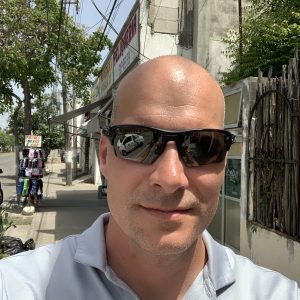About one in nine children in the US between the ages of three and 17 have attention-deficit/hyperactivity disorder (ADHD). As we reported on this blog, ADHD diagnoses in US children and adolescents have increased significantly in recent years. A new study published in the Journal of Clinical Child & Adolescent Psychology last May called pediatric ADHD “an ongoing and expanding public health concern.”
ADHD is a neurodevelopmental disorder affecting both children and adults. It is described as a “persistent” or ongoing pattern of inattention and/or hyperactivity-impulsivity that gets in the way of daily life or typical development. People with ADHD may also have difficulties with maintaining attention, executive function (or the brain’s ability to begin an activity, organize itself, and manage tasks), and working memory.
AWARENESS IS KEY!
October is ADHD Awareness Month and this year’s theme is “Awareness is Key!” Participants aim to provide reliable information and resources to help people thrive with ADHD. In keeping with the motto “Awareness is Key!” the ADHD community is encouraged to increase awareness and understanding by sharing ADHD information and support with all who could benefit.
The team at Turning Winds has a lot of experience treating clients with an ADHD diagnosis. One of them was Ben (name changed to protect his privacy) who was diagnosed when he started to have failing grades in elementary school. Despite being put on medication (Adderall), his academic struggles became more severe and evolved into disruptive behavior in middle school, including rudeness and defiance.
“It’s often difficult for parents to navigate that situation. They don’t know how to respond to certain situations. They’re not sure what’s driving this behavior and how parents can get ahead of it,” says Turning Winds’ clinical director Jared Sartell who speaks from experience since he has a child with ADHD himself.
Children with ADHD have a hard time thriving in a contemporary school environment. “There used to be a place for those kids, there used to be traditional academics but there was also an auto shop and other hands-on instruction, there was lots of PE and intramural sports. There were ways for people to thrive outside the classroom,” says Sartell. “Now, our system has shifted away from that, and most of the time, students are required to sit still in the classroom. It’s ‘do your work, don’t question anything’—essentially, don’t make life inconvenient for the adults running the show.”
ADDICTION RISK
If not treated adequately, people with ADHD frequently attempt to control their stressful symptoms with substance misuse. Children and adolescents with ADHD initiate nicotine and cannabis use earlier than their peers without ADHD and develop substance use disorder (SUD) faster.
Nicotine and cannabis alter brain development in areas affected by ADHD, so the brain of a kid with ADHD is more sensitive to the effects of psychoactive substances. Younger initiation of cannabis, alcohol, and prescription drug misuse has been associated with higher rates and faster development of SUDs. Teenage substance misuse is strongly correlated with the current mental health crisis among young people.
The Turning Winds model of care is fine-tuned to individual needs and provides plenty of experiential outlets. The treatment approach utilizes the expansive landscape of Montana to combine adventure therapy, experiential education, and psycho-educational therapy.
Experiential learning is based on the assumption that lasting change can occur when people are placed outside their familiar environment and immersed in new and somewhat challenging situations. “I enjoy utilizing the mountains we have here,” says Sartell. “We utilize different resources that are available within our communities and just within this mountainous region. Getting them to do activities that are healthy, that are positive, can give them outlets for their stress so they can replace the negative patterns and behaviors they had with healthy ones.”
The treatment focus at Turning Winds is on creating a stable pattern of living through education, process groups, and individualized treatment planning and review. Our mission is to rescue teens from crises, renew their belief in their potential, reunite them with their families, and launch them on a sustainable path to success.
If your teen is struggling with mental health or substance use issues, contact us online for more information, or call us at 800-845-1380.
ADHD LINKS
ADHD Awareness Month
Attention Deficit Disorder Association (ADDA)
CDC: ADHD Across the Lifetime
Children and Adults with Attention-Deficit/Hyperactivity Disorder (CHADD)









